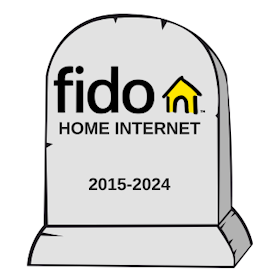
Article Summary
- 5G is the fifth generation of wireless technology, following 4G LTE.
- 5G technology promises blazing-fast speeds up to 10Gbps with significantly increased bandwidth.
- Its shorter, high-band millimetre waves mean 5G signals can't travel as far or work well indoors.
- Until the infrastructure is fully built, 5G access is limited to outdoor hotspots in urban areas.
5G is poised to dramatically change the way we connect and communicate. From cell phones to computers and beyond, connected devices will have access to unmatched speed and power from this groundbreaking technology.
So what exactly is 5G, and why is there such a fuss about it? We'll discuss how 5G works, where in Canada it's available, and the ways in which it's set to completely change the game.
What Is 5G?
5G is an upgrade of the cellular and internet technology that allows your device to transmit data. The "G" stands for "generation," the latest of which has been 4G LTE.
In order to access the internet, your wireless device uses specific radio frequencies. These frequencies are grouped into "bands" to create communication networks upon which your service provider operates. Until now, all wired and wireless internet had operated on low and middle frequency bands to connect you to the web.
5G differs in that it operates on the highest-frequency radio waves, called millimetre waves (mmWave). These high frequencies allow data to travel at unprecedented speeds with practically zero lag time (called "latency") and accommodate a much higher capacity of network traffic.
5G vs. 4G LTE
| 4G LTE | 5G | |
|---|---|---|
| Peak download speeds | 1Gbps | 20Gbps |
| Average download speeds | 25-50Mbps | 100Mbps-1Gbps |
| Average latency | 40-60ms | 1-10ms |
5G outclasses 4G LTE in nearly every respect—speed, latency, and bandwidth. Using high-frequency millimetre waves, 5G speeds are over 600 times faster than standard 4G—reaching potential speeds of up to 20Gbps with just 10ms latency. 5G also offers greater traffic capacity, supporting as much as 100 times more network traffic than 4G. This means 5G can support a great deal more devices on the network simultaneously without proverbial traffic jams.
Currently, 5G is limited to specific outdoor hotspots in densely populated urban areas, for a couple of reasons. First, millimetre waves travel a much shorter distance than those of previous generations, so although 5G networks are initially being built upon existing 4G infrastructure, its signals can't currently reach from one 4G LTE tower to another. Service providers must install new antennas and "base stations" to bring 5G to the masses, which is why 5G networks have been slow to expand.
Second, mmWaves are unable to penetrate obstacles blocking their path (even branches or leaves!), making it difficult to get 5G internet indoors. Service providers will need to not only build more antennas in suburban and rural areas, but also offer equipment that makes it possible for a 5G signal to travel within the home.
Implications of 5G Internet
Though 5G is currently most closely associated with cell phone networks, it is set to have a major effect on broadband internet as well. With its lightning-fast speeds, low latency, and expanded capacity, 5G has the capability to support entire connected environments—it carries the potential to connect completely driverless vehicle networks, transmit data instantly over global healthcare networks, and more.
More immediately, 5G will seriously up the ante in terms of your personal wireless experience, from your smartphone to your smart home. Its multi-gigabit speeds can handle all of your connected devices without so much as a hiccup—you could download an entire movie in mere seconds. Its larger traffic capacity also means 5G can maintain excellent network performance during peak hours of usual congestion or during crowded events.
If you’d prefer to hang on to your existing phone and get the newer model, Optus will let you pay out the ‘remaining full cost’ of the older phone to keep it. Note: this isn’t the remaining handset repayments as listed in your plan, this is the remaining portion of the unsubsidised cost. It’s hard to say exactly what this cost will be, but if your phone costs $1000 new, you can assume it will cost about $500 to keep it after 12 months.
If you’d prefer to hang on to your existing phone and get the newer model, Optus will let you pay out the ‘remaining full cost’ of the older phone to keep it. Note: this isn’t the remaining handset repayments as listed in your plan, this is the remaining portion of the unsubsidised cost. It’s hard to say exactly what this cost will be, but if your phone costs $1000 new, you can assume it will cost about $500 to keep it after 12 months.
One major hurdle stands in 5G home internet's way: the aforementioned limits of millimetre wave (mmWave) technology. Because millimetre waves can't penetrate walls, covering your entire home with mmWave 5G internet means setting up multiple routers and/or WiFi extenders at strategic places so that each room has internet access—and all of that equipment can add up in cost.
Home 5G internet is also hamstrung by the slower buildout of 5G network infrastructure. Until you get a 5G base station in your area, broadband 5G internet plans won't be available to you. That said, wireless internet providers like Xplornet and Eastlink plan to incorporate 5G into their broadband internet offerings as soon as infrastructure allows.
5G Internet Availability in Canada
Major Canadian wireless networks began their 5G rollouts in 2020, with Bell, Telus, and Rogers currently offering 5G access in limited capacity. Here's where 5G access points were initially launched.
| Rogers | Bell | Telus | |
|---|---|---|---|
| 5g-accessible cities* | Montreal Ottawa Toronto Vancouver |
Calgary Edmonton Montreal Toronto Vancouver |
Calgary Edmonton Montreal Toronto Vancouver |
*5G hotspots in major urban centres. Must have 5G-enabled device.
Many more markets have since been added, bringing 5G to hundreds of cities across Canada. Videotron has also launched 5G service but service is restricted to Quebec. For now, 5G is limited to outdoor hotspot access in urban areas, as carriers build out more mmWave antennae and work to bring 5G technology indoors. Think stadiums, universities, and other designated "smart centres." Eventually, 5G will reach suburban and rural Canada as more base stations and antennas are installed.
5G Home Internet Plans
As yet, no major Canadian home internet provider offers 5G home internet plans. Until they do, you'll want to look for a mobile phone plan that offers 5G access (and get yourself a 5G-enabled smartphone!).
Now's the perfect time to sign up for a 5G phone plan, before potential access fees cause plan prices to go up! Opting for an unlimited data plan will also let you enjoy 5G access without worrying about overages. Here are some of the most popular unlimited plans with 5G access to get you started.
Related Articles
Find Better Internet and Phone Plans
Hundreds of internet plans unpacked. All the facts. No surprises.
Internet Providers by Provinces and Territories
- Internet in Alberta
- Internet in British Columbia
- Internet in Manitoba
- Internet in New Brunswick
- Internet in Newfoundland and Labrador
- Internet in Northwest Territories
- Internet in Nova Scotia
- Internet in Nunavut
- Internet in Ontario
- Internet in Prince Edward Island
- Internet in Quebec
- Internet in Saskatchewan
- Internet in Yukon Territory





















































